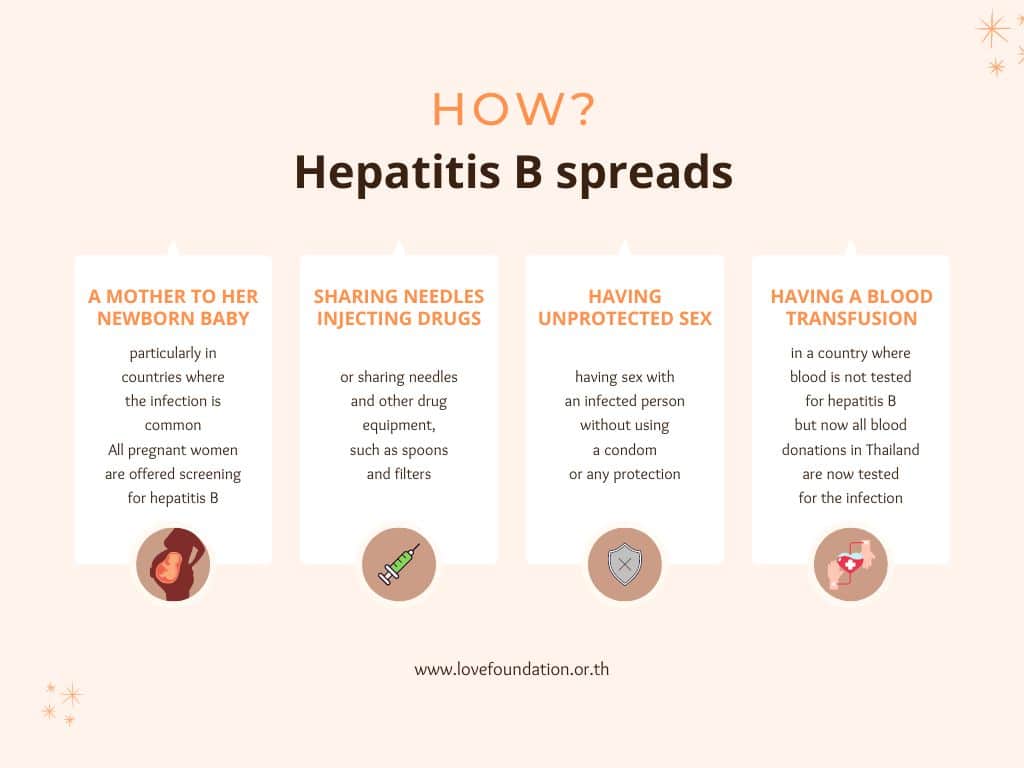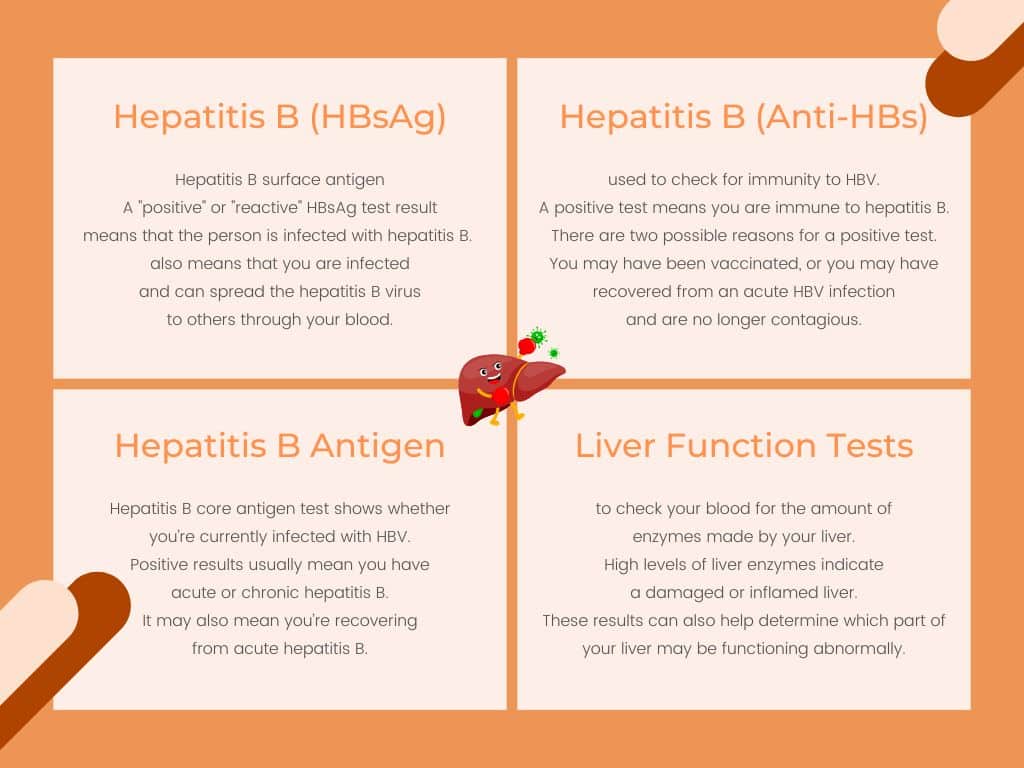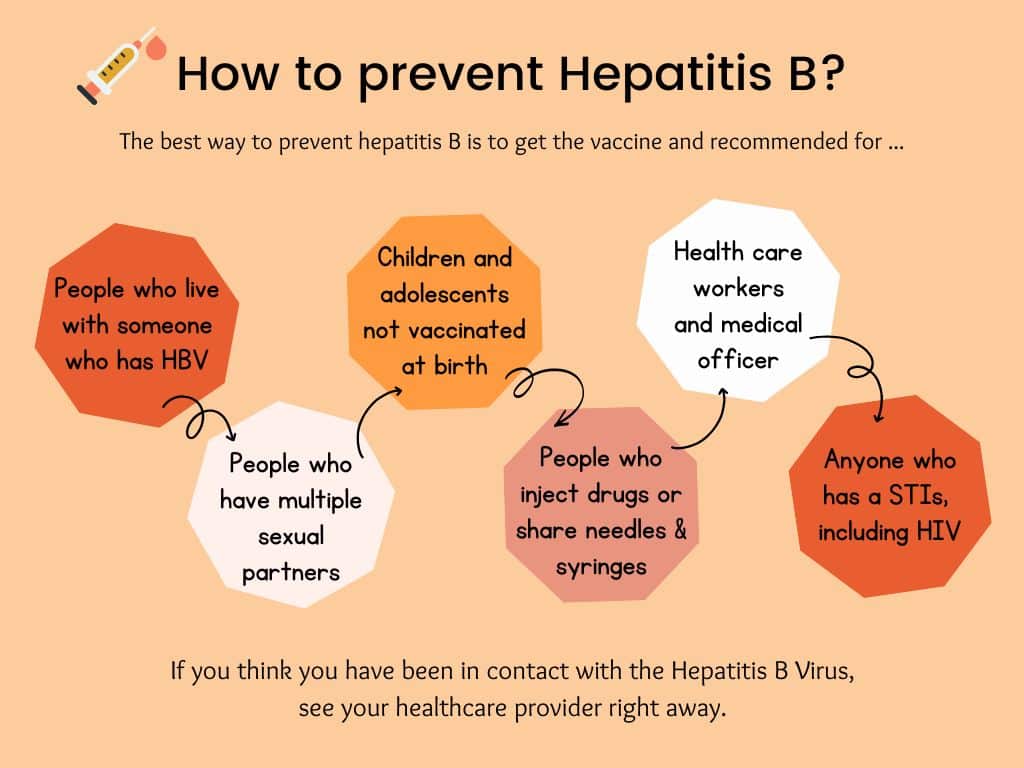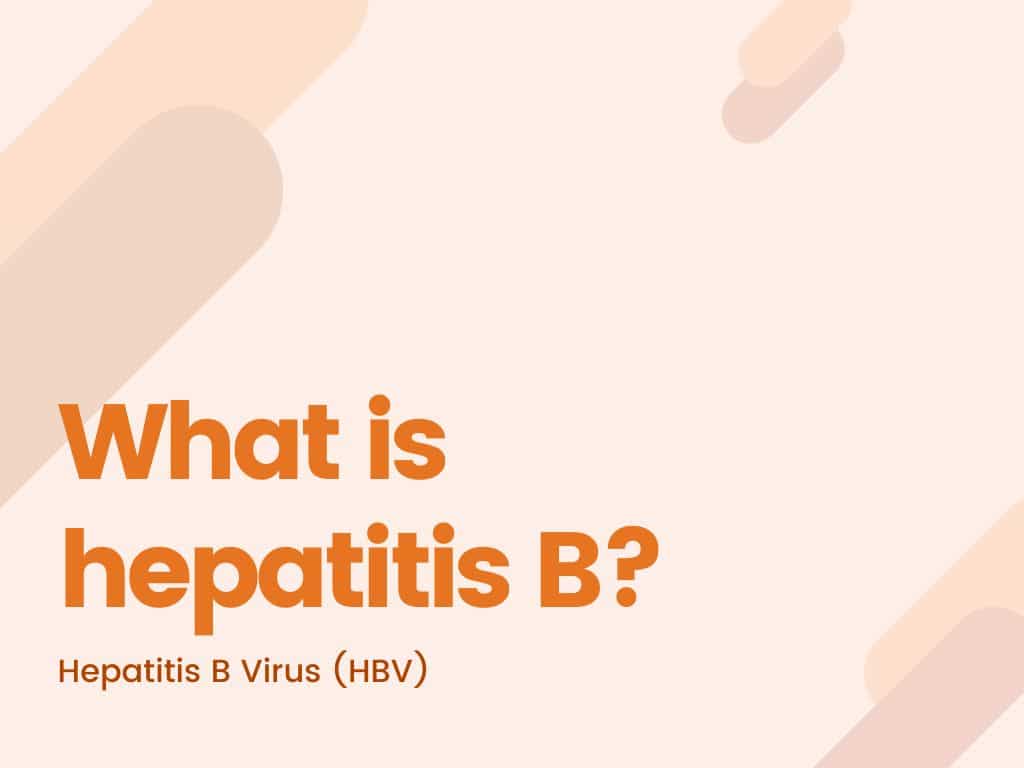Hepatitis is inflammation of the liver. Inflammation is swelling that happens when tissues of the body are injured or infected. It can damage your liver. This swelling and damage can affect how well your liver functions. This article will talk about What is hepatitis B.
What is hepatitis B?
Hepatitis B is a liver infection caused by the hepatitis B virus (HBV). HBV is one of five types of viral hepatitis. The others are hepatitis A, C, D, and E. Each is a different type of virus, and types B and C are most likely to become chronicTrusted Source.


Hepatitis B is a “silent epidemic” because most people do not have symptoms when they are newly infected or chronically infected. Thus, they can unknowingly spread the virus to others and continue the silent spread of hepatitis B. For people who are chronically infected but don’t have any symptoms, their liver is still being silently damaged which can develop into serious liver disease such as cirrhosis or liver cancer.
What causes hepatitis B?
Hepatitis B is caused a serious liver infection caused by the hepatitis B virus (HBV). For some people, hepatitis B infection becomes chronic, meaning it lasts more than six months. Having chronic hepatitis B increases your risk of developing liver failure, liver cancer or cirrhosis — a condition that permanently scars of the liver.
How hepatitis B is spread
- a mother to her newborn baby, particularly in countries where the infection is common – all pregnant women in the UK are offered screening for hepatitis B; babies of infected mothers are vaccinated immediately after birth to help prevent infection
- injecting drugs and sharing needles and other drug equipment, such as spoons and filters
- having sex with an infected person without using a condom
- having a tattoo, body piercing, or medical or dental treatment in an unhygienic environment with unsterilized equipment
- having a blood transfusion in a country where blood is not tested for hepatitis B – all blood donations in the UK are now tested for the infection
- sharing toothbrushes or razors contaminated with infected blood
- the skin being accidentally punctured by a used needle (needle stick injury) – this is mainly a risk for healthcare workers
- the blood of someone with hepatitis B getting into an open wound, cut or scratch – in rare cases, being bitten by someone with
- hepatitis B can also spread the infection
Hepatitis B is not spread by kissing, holding hands, hugging,
coughing, sneezing or sharing crockery and utensils.
Who’s most at risk of hepatitis B
People at highest risk of hepatitis B include:
- men who have sex with other men
- people with multiple sex partners
- Infants born to mothers who have hepatitis B
- people with chronic liver disease
- people with kidney disease
- those traveling to countries with a high incidence of HBV infection
- People who inject drugs or share needles, syringes, and other types of drug equipment
- Sex partners of people with hepatitis B, especially if they are not using latex or polyurethane condoms during sex
- People who live with someone who has hepatitis B, especially if they use the same razor, toothbrush, or nail clippers
- close contacts, such as family members, of someone with a long-term (chronic) hepatitis B infection
- anyone who has had unprotected sex, including anal or oral sex – particularly people who have had multiple sexual partners, people who have had sex with someone in or from a high-risk area, men who have sex with men, and commercial sex workers
What are the symptoms of hepatitis B?
Many people with hepatitis B will not experience any symptoms and may fight off the virus without realizing they had it.
Signs and symptoms of hepatitis B range from mild to severe. They usually appear about one to four months after you’ve been infected, although you could see them as early as two weeks post-infection. Some people, usually young children, may not have any symptoms.

Symptoms of hepatitis B include
- Dark yellow urine
- Diarrhea
- Fatigue
- Fever
- Gray- or clay-colored stools
- Joint pain
- Loss of appetite
- Nausea and/or vomiting
- Abdominal pain
- Weakness and fatigue
- Yellowish eyes and skin, called jaundice
These symptoms will usually pass within 1 to 3 months (acute hepatitis B), although occasionally the infection can last for 6 months or more (chronic hepatitis B).
Hepatitis B Complications
Although most people with chronic hepatitis B don’t feel sick or even know they have it unless it’s in its late stages, some do have serious complications. Chronic hepatitis B can lead to:
- Scarring of the liver (cirrhosis). The inflammation associated with a hepatitis B infection can lead to extensive liver scarring (cirrhosis), which may impair the liver’s ability to function.
- Liver cancer. If you have chronic hepatitis B, your doctor may recommend that you get an ultrasound exam to see if there are any signs of liver cancer.
- Liver failure. This is when your liver is no longer able to do its work. You may also hear it called “end-stage” liver disease. This only happens in severe cases of chronic hepatitis B.
- Kidney disease. Researchers have found that people with cirrhosis caused by hepatitis B may be more likely to have certain types of kidney disease.
- When that occurs, a liver transplant is necessary to sustain life.
- Other conditions. People with chronic hepatitis B may develop kidney disease or inflammation of blood vessels.
When to see a doctor
If you know you’ve been exposed to hepatitis B, contact your doctor immediately. A preventive treatment may reduce your risk of infection. If you think you have signs or symptoms of hepatitis B, contact your doctor.

How is hepatitis B diagnosed?
If your doctor thinks you may have it, they’ll give you a complete physical exam. They will test your blood to see if your liver is inflamed. If you have hepatitis B symptoms and high levels of liver enzymes, you’ll be tested for:
- Hepatitis B surface antigen and antibody(HBsAg). Antigens are proteins on the hepatitis B virus. Antibodies are proteins made by your immune cells. They show up in your blood between 1 and 10 weeks after exposure. If you recover, they go away after 4 to 6 months. If they’re still there after 6 months, your condition is chronic.
- Hepatitis B surface antibody (Anti-HBs) test is used to check for immunity to HBV. A positive test means you are immune to hepatitis B. There are two possible reasons for a positive test. You may have been vaccinated, or you may have recovered from an acute HBV infection and are no longer contagious.
- Hepatitis B core antigen test shows whether you’re currently infected with HBV. Positive results usually mean you have acute or chronic hepatitis B. It may also mean you’re recovering from acute hepatitis B.
- Liver function tests are important in individuals with hepatitis B or any liver disease. Liver function tests check your blood for the amount of enzymes made by your liver. High levels of liver enzymes indicate a damaged or inflamed liver. These results can also help determine which part of your liver may be functioning abnormally.
If these tests are positive, you might require testing for hepatitis B, C, or other liver infections. Hepatitis B and C viruses are a major cause of liver damage throughout the world. You will likely also require an ultrasound of the liver or other imaging tests.
If your disease becomes chronic, your doctor might take a tissue sample from your liver, called a biopsy. This will tell them how severe your case is. You might also get a liver ultrasound to check on how much liver damage there is.
Hepatitis B Treatment
If you think you’ve been exposed to the virus, get to a doctor as soon as possible. The earlier you get treatment, the better. They’ll give you a vaccine and a shot of hepatitis B immune globulin. This protein boosts your immune system and helps it fight off the infection. If you do get sick, your doctor may put you on bed rest to help you get better faster.
You’ll have to give up things that can hurt your liver, like alcohol and acetaminophen. Check with your doctor before taking any other drugs, herbal treatments, or supplements. Some of them can harm this organ, too. Also, eat a healthy diet.
If the infection goes away,
the doctor will tell you you’re an inactive carrier. That means there’s no more virus in your body, but antibody tests will show that you had hepatitis B in the past.
If the infection is active for longer than 6 months, your doctor will tell you that you have chronic active hepatitis B. They may prescribe some of these medications to treat it:
- Adefovir dipivoxil (Hepsera). This drug, which you take as a tablet, works well for people who don’t respond to lamivudine. High doses can cause kidney problems.
- Entecavir (Baraclude). This is taken once a day with few side effects. It is considered the front line treatment.
- Interferon alfa (Intron A, Roferon A, Sylatron). This medicine boosts your immune system. You take it as a shot for at least 6 months. It doesn’t cure the disease. It treats liver inflammation.
- Lamivudine (3tc, Epivir A/F, Epivir HBV, Heptovir). It comes as a liquid or tablet you take once a day. Most people don’t have a problem with it. But if you take it for a long time, the virus might stop responding to the drug.
- Pegylated Interferon (Pegasys) Long-acting interferon,is given by injection once a week usually for 6 months to a year. But this drug can make you feel bad all over or depressed, and it can and zap your appetite. It also lowers your white blood cell count, which makes it harder to fight off infection.
- Telbivudine (Tyzeka) is an antiviral medication. Resistance to this medication is common.
- Tenofovir alafenamide (Vemlidy). These tablets are taken 6 to 12 months.
- Tenofovir disoproxil fumerate (Viread). This drug comes as a powder or tablet. If you take it, your doctor will check often to make sure it doesn’t hurt your kidneys.
Can Hepatitis B be cured?
There is currently no cure for HBV. it often goes away in a few months, and it sometimes disappears in people who have a chronic case of the disease. but receiving the vaccine can prevent initial infection.
Antiviral medication can treat chronic infections. If chronic HBV starts causing permanent liver damage, undergoing a liver transplant can help improve long term survival.
How to prevent Hepatitis B
The best way to prevent hepatitis B is to get the hepatitis B vaccine.
The hepatitis B vaccine is recommended for:
- Newborns
- Children and adolescents not vaccinated at birth
- Those who work or live in a center for people who are developmentally disabled
- People who live with someone who has hepatitis B
- Health care workers, emergency workers and other people who come into contact with blood
- Anyone who has a sexually transmitted infection, including HIV
- Men who have sex with men
- People who have multiple sexual partners
- Sexual partners of someone who has hepatitis B
- People who inject illegal drugs or share needles and syringes
- People with chronic liver disease
- People with end-stage kidney disease
- Travelers planning to go to an area of the world with a high hepatitis B infection rate

You can also reduce your chance of hepatitis B infection by:
- Not sharing drug needles or other drug materials
- Wearing gloves if you have to touch another person’s blood or open sores
- Making sure your tattoo artist or body piercer uses sterile tools
- Not sharing personal items, such as toothbrushes, razors, or nail clippers
- Using a latex condom during sex. If you or your partner is allergic to latex, you can use polyurethane condoms.
If you think you have been in contact with the hepatitis B virus, see your healthcare provider right away. Your provider may give you a dose of the hepatitis B vaccine to prevent infection. In some cases, your provider may also give you a medicine called hepatitis B immune globulin (HBIG). You need to get the vaccine and the HBIG (if needed) as soon as possible after coming into contact with the virus.
References
Hepatitis B https://www.mayoclinic.org/diseases-conditions/hepatitis-b/symptoms-causes/syc-20366802
Hepatitis B https://www.webmd.com/hepatitis/digestive-diseases-hepatitis-b
Hepatitis B https://www.nhs.uk/conditions/hepatitis-b/
Hepatitis B https://medlineplus.gov/hepatitisb.html
Last Updated on 24/10/2024 by ทีมที่ปรึกษา มูลนิธิเพื่อรัก

